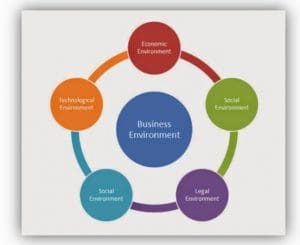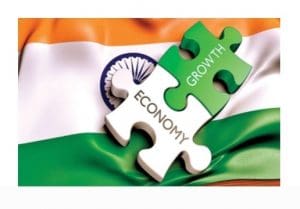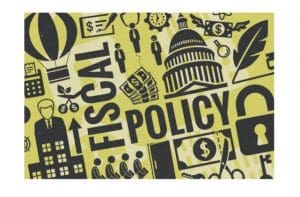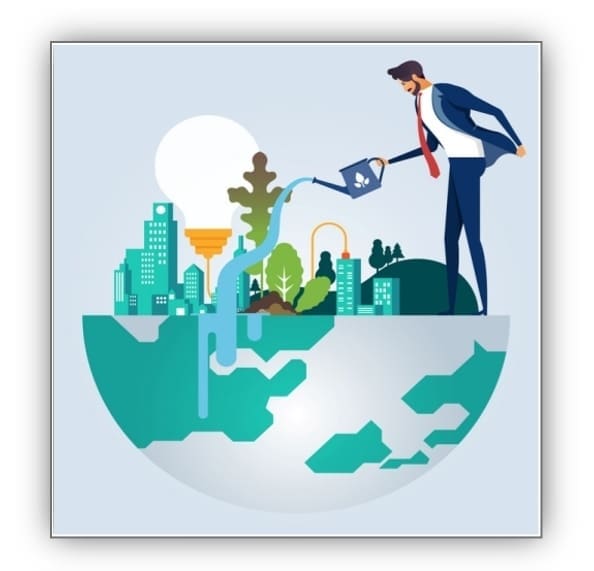Meaning of Business Environment:
“Business environment refers to forces and institutions outside the firm with which its members must deal to achieve the organisational goals “. In general words we can say business environments is the surrounding in which business exists.
*Forces = economical, social, political, technological etc
*Institutions = suppliers, customers, competitors etc

DIMENSIONS/COMPONENTS OF BUSINESS ENVIRONMENT
• Economic Environment: It has immediate and direct economic impact on a business. Rate of interest, inflation rate, change in the income of people, monetary policy, price level etc. are some economic factors which could affect business firms. Economic environment may offer opportunities to a firm or it may put constraints.
• Social Environment: It includes various social forces such as customs, beliefs, literacy rate, educational levels, lifestyle, values etc. Changes in social environment affect an organization in the long run. Example: Now a days people are paying more attention towards their health, as a result of which demand for mineral water, diet coke etc. has increased while demand of tobacco, fatty food products has decreased.
• Technological Environment: It provides new and advance ways/techniques of production. A businessman must closely monitor the technological changes taking place in the industry as it helps in facing competition and improving quality of the product. For Example, Digital watches in place of traditional watches, artificial fabrics in place of traditional cotton and silk fabrics, booking of railway tickets on internet etc.
• Political Environment: Changes in political situation also affect business organizations. Political stability builds confidence among business community while political instability and bad law & order situation may bring uncertainty in business activities. Ideology of the political party, attitude of government towards business, type of government-single party or coalition government affects the business Example: Bangalore and Hyderabad have become the most popular locations for IT due to supportive political climate.
• Legal Environment: It constitutes the laws and legislations passed by the Government, administrative orders, court judgements, decisions of various commissions and agencies. Businessmen have to act according to various legislations and their knowledge is very necessary. Example: Advertisement of Alcoholic products is prohibited and it is compulsory to give statutory warning on advertisement of cigarettes.
 Economic Environment in India
Economic Environment in India
Since 1991 India has been going on economic reforms. We have now adopted the policy of liberalisation, privatisation and globalisation, We have started modernising the country’s industrial system.Unproductive control are being removed private investment, including foreign investment is being encouraged.
• Liberalisation:- It means removing unnecessary trade restrictions and making the economy more competitive like as freedom of production, expansion of industries.
• Privatisation:- It means removing strict control over private sector and making them free to take necessary decisions. Like as reduction in the number of reserved public sector industries, increasing the share of private sector investment.
• Globalisation:- Free interaction among economies of the world in the field of trade, finance, production, technologies and investment is termed as globalisation. Our new economic policy contributed towards globalisation in the following ways.
(a) Devaluation of rupee
(b) Raising foreign equity participation
(c) Long period trade policy
(d) Convertability of rupee

Impact of Government Policy Changes on Business and Industry
• Increasing Competition:- There is a tough competition between multinationals and there is also competitions between Indian enterprises and foreign enterprises.
• More Demanding Customers:- Customers today become more demanding because they are well-informed.
• World Class Technology:- Changes in government policy regarding business and industry has provided us with world class technology.
• Necessity for Change:- After 1991, the market forces have become turbulent as a result of which the enterprises have to continuously modify their operations.
• Need for Developing Human Resource:- The new market conditions requires people with higher competence and greater commitment.
• Market Orientation:- Today firms are market oriented. They research the market, need and wants of consumers and then they produce good accordingly.
• Loss of Budgetary Support to Public:- Sectors The government’s budgetary support for financing the public sector has declined over the years.

– Priyal Agrawal – Management Trainee- TVC
Priyalagrawal32@gmail.com
SDPS Womens College of Fashion, Interior & Architecture Designing, Indore(M.P.)
Batch 2018-2022

